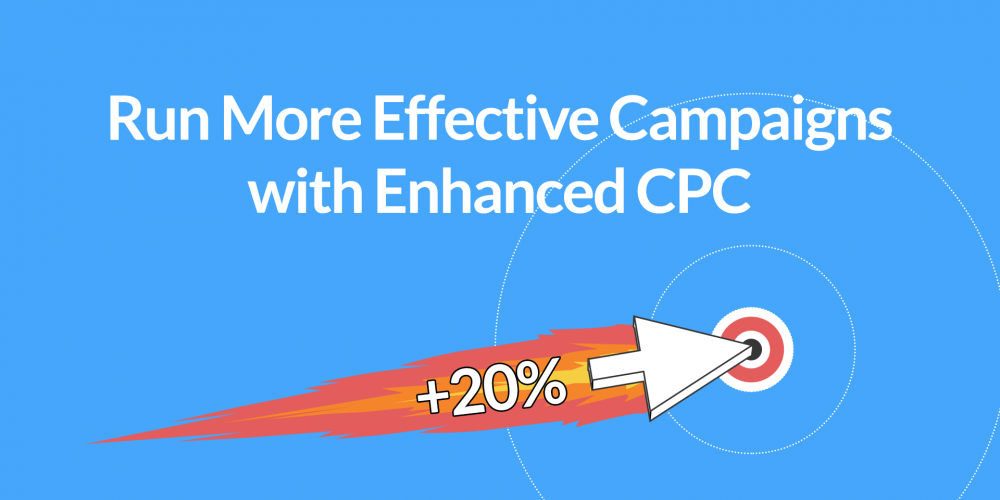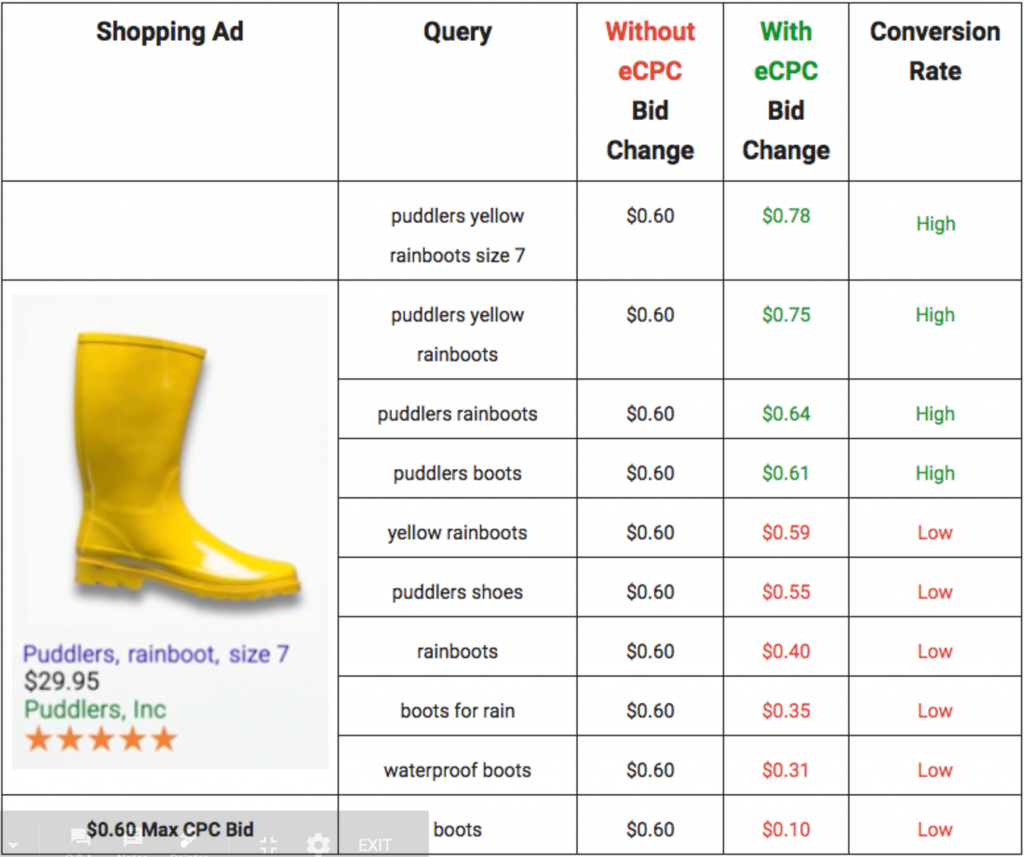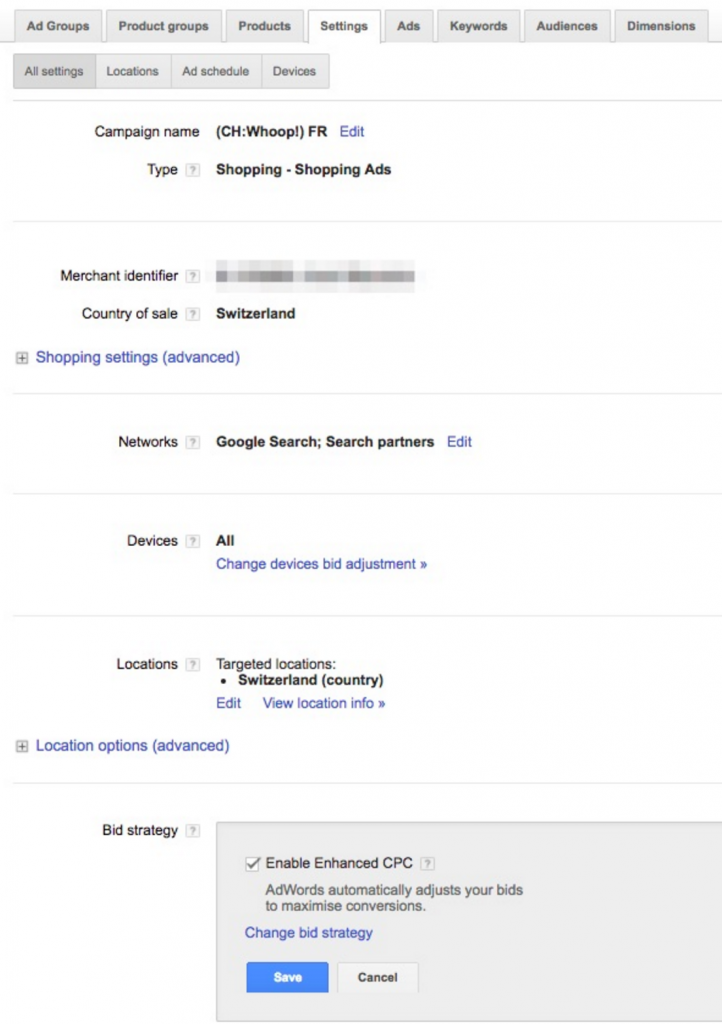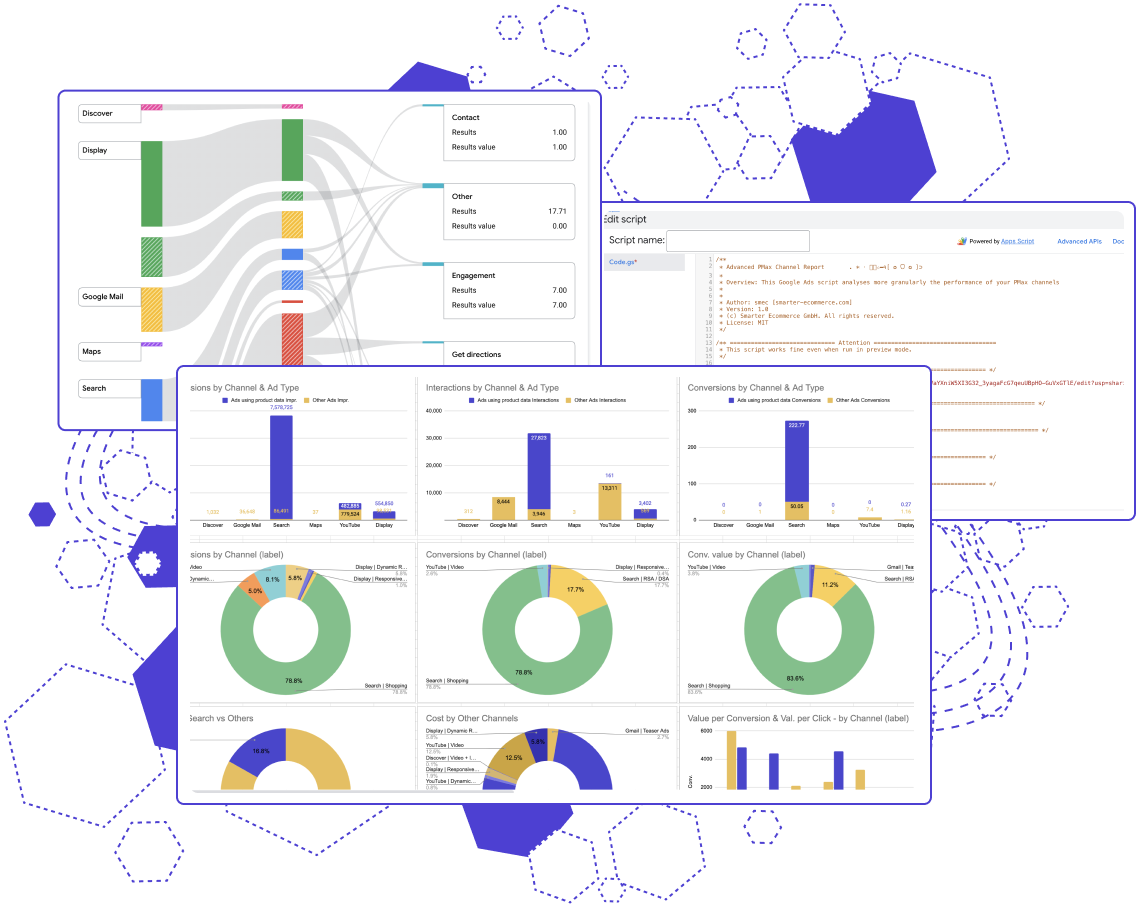Subscribe to join thousands of other ecommerce experts

Google’s enhanced CPC (eCPC) feature is aptly named: it enhances the range of your manual or automated CPC bids, and thereby enhances the outcomes of your campaigns. eCPC is a dynamic bidding strategy for your Google Ads campaigns that helps you to maximize your conversions while spending your budget more efficiently. Let’s look at how the feature works before taking it to the next level: we’ll show you how to push your performance even further by combining eCPC with predictive bid management.
Table of Contents
What is enhanced CPC?
Google launched enhanced CPC back in 2010, and it remains just as useful today. When you check this box in your account settings within Google Ads, you allow Google to modify your specified CPC bids upwards to maximize your conversions, or downwards to conserve your budget. Based on previous conversion data and real-time auction signals, Google calculates the probability that a search query is more or less likely to lead to a successful conversion.
The concept is simple, just think of your own search habits: if you search for generic terms like “boots”, “running shoes”, or “t-shirt”, you probably want information about this product, but maybe you don’t want to buy it yet. But when you search for “buy yellow boots size 38” or “t-shirt size m women green” you are signaling your intent to purchase. This is exactly the point where eCPC can step in and help you boost the efficiency of your Shopping performance.
Have a look at this example:
The maximum CPC bid for this rain boot is 60 cents, and without eCPC, your maximum bid for all the search queries listed would be a capped 60 cents. That bid could be too high for generic search queries, but too low for specific search queries. And you might not be displayed at all if your bid is lower than the bid of your competitors.
With eCPC, however, you spend your money more efficiently: for generic search queries, Google is allowed to decrease the bid up to 100% when Google knows that the conversion rate with this search query is on the low side. On the flip side, the more a user adds brand- and product-related terms like size, color, product type etc, the more likely a conversion is — and that’s why Google increases the max CPC for those queries.
Prior to May 2017, there was an upper cap of 30% limiting how much Google was allowed to increase the bid. Since then, this bid ceiling was removed and Google can raise the bid even higher. Don’t be concerned about this — in the long run, the average CPC will be kept below your desired max CPC.
eCPC is a great way to reach your target group more consistently, especially for location- and audience modifiers. If you activate a modifier to increase the bid for those groups and one of its members searches for your products with a longtail query (i.e. a more specific query), it’s likelier that you will be displayed in a strong position because your bid won’t be needlessly limited.
Multiply your advantages: eCPC x predictive bidding
Enhanced CPC is a semi-automated bid strategy, so you don’t surrender much control over your account by using. First, you define the bid, then Google is able to adjust it based on assorted real-time auction signals. Nobody other than Google has access to data of the actual query, the browser, the interface language, the operating system, or the location.
But as Google points out, eCPC works well “with third-party bidding systems, even if they’re automating your bids.” We would just make one little change: “especially if they’re automating your bids”.
eCPC becomes even more powerful in combination with automated bidding.
We actively encourage our Shopping Ad Automation customers to use enhanced CPC. Not only because Google’s data and machine learning assets are beneficial, but also because our software has account-specific insights that Google can’t access. Experience has proven to us that there’s a perfect synergy between our technology and enhanced CPC. The two just click with each other.
smec’s Shopping Ad Automation technology delivers item-level, predictive performance. By analyzing over 100 correlations between product attributes and performance, smec’s algorithm is able to model extremely granular bids based on your data feed. Meanwhile, Google is able to use auction data that our software simply doesn’t have.
Only by using both enhanced CPC and our Shopping Ad Automation technology is it possible to leverage the dual uplift of these strategies. First, our software predicts the ideal item-specific bid based on the historical data of the product the KPI-targeted goals that you specify. Then the search query takes place where Google is allowed to adjust & further optimize this bid due to the likeliness of a conversion. smec helps you have the best possible starting point, and eCPC, in turn, helps our Shopping Ad Automation technology to reach the targets of your bid strategy even more precisely and to be more efficient with your ad spend.
But just like every other machine learning system, eCPC has to collect data to build its models. Since Google is the world’s largest search engine, there is a huge database that it can learn from. Suffice to say, you can expect it to run quite well — just allow 15 days for adaptations.
Please remember that ad quality is important in every auction, too. The title of a given product in the product data feed is particularly important for eCPC to run properly. If the title itself is generic, it could be difficult for Google to match it with longtail search queries.
Give it a try!
The old saying “the proof is in the pudding” applies to enhanced CPC as well. Only by checking that box can you see firsthand this feature’s uplift in your campaigns. You can monitor the results in the “search terms” tab in Google Ads to check out how ECPC is adjusting the bids. Likewise, if you’re wondering what predictive bid management can do for you, it’s as simple as giving it a try:
If you have further questions concerning enhanced CPC and/or Shopping Ad Automation, please contact our Customer Success Team via [email protected]. They’ll be glad to help you out!



